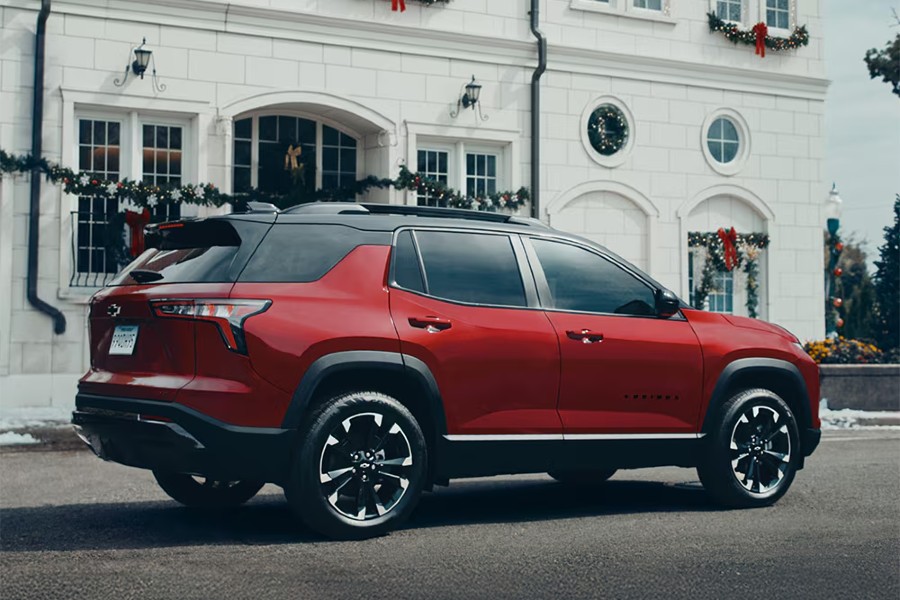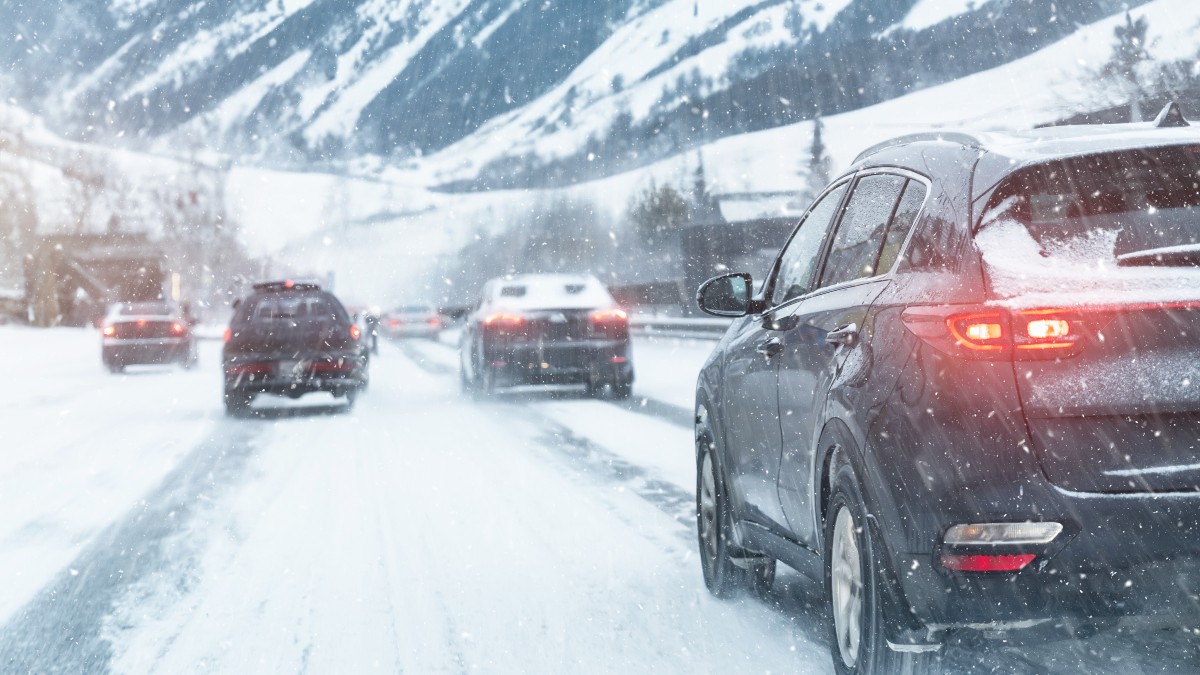While we might officially be in cozy season now, the air will only continue to grow more and more frigid as winter approaches. That makes this the perfect time to start preparing your vehicle for the changing seasons, if you haven’t already. Oklahoma winters can be unpredictable, with the sun shining high one day followed quickly by biting cold temperatures and icy road conditions the next. That’s why winterizing your Chevy is so important, as it’s an essential step to ensuring safety and smooth driving through the colder months of the year. So, today we’re going to give you a guide to doing just that, with tips and tricks for Tulsa drivers in regards to your fluids, tires and battery.
Flush or Top Off Fluids
There are several different fluids that go into making your vehicle work the way it should, much more than just the gasoline you pump into it every few days. These fluids should periodically be flushed, but it’s not always necessary. If it is time for a flush on a specific fluid though, you might as well take care of it now, as you’re going to want to top off all of your fluids before the temperatures start dropping to low, as the cold can wreak havoc on your fluids.
- Engine coolant, sometimes known as antifreeze, prevents your engine from freezing in low temperatures. It should be flushed every 50,000 miles or five years. If you don’t need to get a flush, you should at least have a service team top it off with the correct ratio of coolant to water.
- Motor oil, which you should be fairly familiar with, is available in special cold weather variants if you’re interested in enhancing your cold-start performance. If it’s time for an oil change, you could consider one of these alternatives, feel free to give us a call with any questions.
- Windshield washer fluid doesn’t seem all that important most of the time, but it’s actually crucial to your safety through the winter. If your windshield gets icy and dirty during the winter, using your wipers with some washer fluid can be a great way to clean it off, but standard fluid can freeze and leave you with poor visibility out your windshield. You should replace your washer fluid with a variant designed for the winter, as there are some with deicing capabilities out there.
- Brake fluid, transmission fluid and power steering fluid don’t have any winter-specific considerations, but the cold can affect their performance if your fluid is already old or contaminated. If you haven’t flushed them according to your manufacturer’s maintenance recommendations found in your owner’s manual, consider taking care of them now. Here are some rules of thumb:
- Brake — two to three years or 24,000 to 36,000 miles
- Transmission — 50,000 to 100,000 miles
- Power steering — 50,000 miles

Check Tire Tread & Pressure
Having proper tires on your vehicle becomes even more important in the winter, when road conditions can become snowy or even icy, often leading to reduced traction and grippability. When roads are slick, especially on bridges and overpasses, your tires are your first line of defense. While you certainly don’t have to replace your tires every year, you should definitely be checking your tread depth before winter arrives to make sure it isn’t time for a new set. You can easily do so yourself by interesting a penny into the tread with Lincoln’s head down, then determine if you can see the top of his head. If you can… it’s unfortunately time to upgrade your tires.
You should also be checking your tire pressure on a fairly regular basis throughout the winter. Check it now and make sure to get each one back to the recommended level, but then keep checking them periodically through the winter months, as cold air can cause your tire pressure to drop. Underinflated tires wear out much faster and can reduce your fuel efficiency.
Some other winter recommendations regarding tires include making sure you have a properly inflated spare tire and a jack, as you’re not going to want to sit around waiting in the cold if something happens to one of your tires. And, if you can afford it, you should consider getting a special set of winter tires to swap between if you want to maximize your safety and peace of mind.
Check & Replace Battery
The winter is the worst time of the year for your Chevy vehicle’s battery, as the cold weather can really do a number on it. The colder the air gets the slower the chemical reactions within the battery happen, which makes it tougher to start your engine. It’s important to remember that most car batteries are only meant to last three to five years, so you should have your battery tested if it’s getting close to time to replace.
If you determine you don’t need to replace the battery, you should at least clean the terminals. Corrosion on the battery terminals can interfere with the flow of power, so clean them with a wire brush and apply dielectric grease to prevent future buildup if you feel comfortable doing so.
We hope that your winterization goes off without a hitch, but if you do determine you need something taken care of before the temperatures drop too low or the snow starts to fall, don’t hesitate to schedule an appointment right here at Jim Glover Chevrolet. We look forward to taking care of you and your vehicle!


